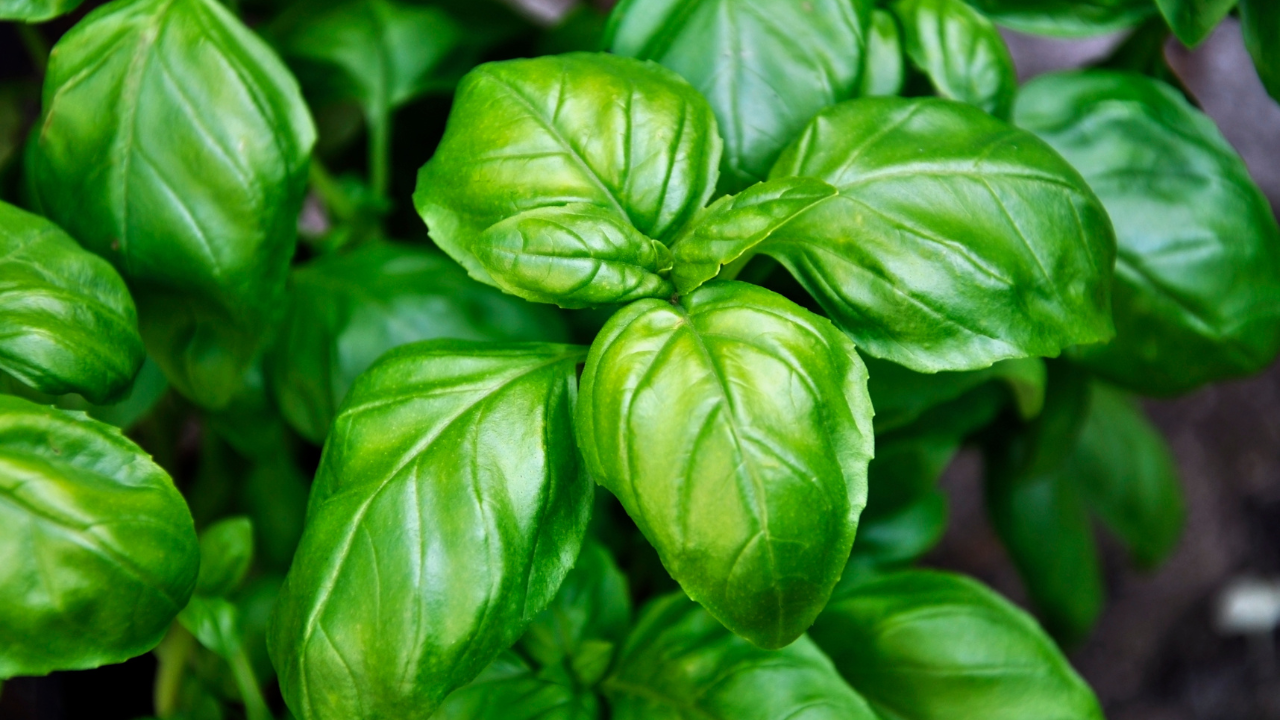Research Highlights:
Main Point 1: Basil, often used as a culinary herb, possesses significant antibacterial properties, making it a promising tool in the fight against drug-resistant bacteria.
Main Point 2: Traditional uses of basil in treating respiratory illnesses, particularly tuberculosis, are supported by research showing its potential to alleviate symptoms.
Main Point 3: Basil showcases cancer-fighting potential through various mechanisms, including apoptosis induction, antioxidant activity, and cell division inhibition, attributed to its rich phytochemical content.
Scientifically Reviewed by: Holli Ryan, RD, LD/N, in August 2023
Introduction
In the world of herbs, one often overlooked gem stands out—Basil. Beyond its role as a culinary delight, basil harbors a treasure trove of health benefits. This article embarks on a journey to unravel the multifaceted potential of basil, exploring its antibacterial properties, traditional applications in respiratory health, and its promising role in the fight against cancer. Understanding these aspects is vital, especially in the context of cancer research and treatment.
What You Need to Know
Point 1: A Natural Antibacterial Ally Basil emerges as a natural antibacterial ally with the potential to combat drug-resistant bacteria. Research has demonstrated its inhibitory effects on bacteria such as Enterococcus, Staphylococcus, and Pseudomonas. This discovery offers hope in the face of widespread and challenging-to-treat bacterial infections. [1]
Point 2: Basil's Role in Tuberculosis Symptom Relief Delving into its traditional uses, basil showcases its potential to ease tuberculosis symptoms. Extracts from various parts of the plant have been studied and found to have a synergistic effect on respiratory illnesses. This opens doors for exploring basil as a complementary approach to tuberculosis management. [2]
Point 3: The Cancer-Fighting Potential of Basil Basil unveils its remarkable cancer-fighting potential in a 2013 study. Researchers have identified its ability to combat several types of cancer, including oral, liver, skin, and lung cancer. This potency is attributed to a rich repertoire of phytochemicals within basil, such as luteolin, apigenin, eugenol, rosmarinic acid, and myrtenal. Basil's mechanisms include apoptosis induction, antioxidant activity, and cell division inhibition, offering a multifaceted approach to cancer prevention and treatment. Although promising, further research is essential to harness the full potential of basil in the fight against cancer. [3]
With these insights into basil's diverse capabilities, we embark on a journey through its antibacterial prowess, its role in respiratory health, and its potential as a cancer-fighting agent.
Section 1: Basil as an Antibacterial Powerhouse
In this section, we delve into basil's antibacterial properties, which hold promise in the battle against drug-resistant bacteria.
Subsection 1.1: Basil's Antibacterial Potential We explore the scientific evidence supporting basil's antibacterial effects. By referencing studies and their findings, we shed light on how basil can inhibit the growth of multi-drug-resistant bacteria, including Enterococcus, Staphylococcus, and Pseudomonas. Real-world applications and the significance of this discovery come to the forefront.
Section 2: Basil's Role in Respiratory Health
Turning our attention to basil's traditional applications, we explore its potential in alleviating symptoms of respiratory illnesses, particularly tuberculosis.
Subsection 2.1: Basil's Synergistic Effect on Tuberculosis Symptoms We delve into the 2012 research that highlights basil's synergistic effect on tuberculosis symptoms. By elucidating the active compounds and their mechanisms, we emphasize the potential of basil as a complementary approach in easing the burden of respiratory illnesses.
Section 3: Basil's Cancer-Fighting Potential
In this section, we uncover the exciting potential of basil in the realm of cancer prevention and treatment.
Subsection 3.1: Unraveling Basil's Anti-Cancer Mechanisms We explore the mechanisms through which basil combats cancer, including apoptosis induction, antioxidant activity, and cell division inhibition. Supported by scientific evidence and real-world examples, we discuss how basil's rich phytochemical content plays a pivotal role in these mechanisms.
Summary
As our journey through the world of basil comes to a close, we summarize the key takeaways. Basil emerges not only as a culinary delight but also as a potent ally in the battle against drug-resistant bacteria, respiratory illnesses, and cancer. Its multifaceted capabilities offer hope and possibilities in the fields of healthcare and cancer research. With further exploration and research, basil may become an invaluable asset in improving human health and well-being.
References:
- J Microbiol Methods. 2003 Jul;54(1):105-10.
- J Ethnopharmacol. 2012 Oct 31;144(1):220-2.
- Nutr Cancer. 2013;65 Suppl 1:26-35.










